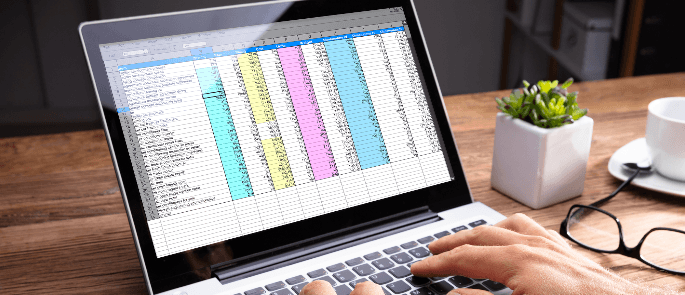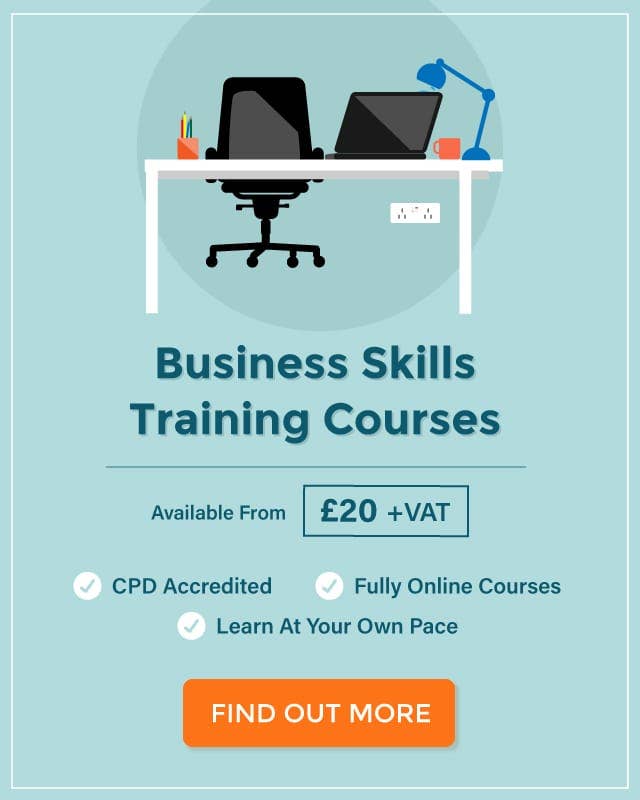Planning a Corporate Event
A well-organised corporate event looks effortless on the surface, but behind it is an event manager who has planned every small detail. Often, weeks or months of efficient organisation are needed, as well as excellent time management, communication, research and marketing skills. But what does it take for an event manager to host an unforgettable corporate event? This article will help you understand the types of corporate events, the benefits of corporate events and how to plan a corporate event effectively.

What is a Corporate Event?
A corporate event is simply an event held on behalf of a business or organisation. Not all corporate events are formal conferences or focused on business goals and statistics; many are casual events aimed at learning new skills or building relationships between colleagues. Your business doesn’t even have to have a high turnover or a large number of employees to be ‘corporate’ – the term simply refers to the fact that the event is organised on behalf of a company, whatever its size or culture.
Corporate events are an excellent way to engage staff, customers and/or clients with your business. Perhaps you’re looking to motivate employees, raise awareness of a business venture or celebrate a success. Amongst many other things, the purpose of a corporate event could be to:
- Provide an opportunity for people to expand their knowledge and skills.
- Strengthen colleagues’ relationships through team-building exercises.
- Provide networking opportunities.
- Share ideas and innovations and keep abreast of industry developments.
- Raise awareness of your brand amongst a particular audience.
- Demonstrate new products to potential purchasers.
- Celebrate company or individual successes.

Types of Corporate Events
There are various types of corporate events that you could choose to hold, some focused more heavily on entertainment and others that concentrate solely on business development.
Consider the list below of 15 different types of corporate events and see which ones appeal to you and your company’s culture, mission and values the most:
- Celebration parties.
- Conferences.
- Award ceremonies.
- Celebrations of company milestones.
- Business dinners.
- Networking events.
- Product launches.
- Board or shareholder meetings.
- Holiday parties.
- Seminars or roundtable discussions.
- Charity functions and fundraising events.
- Customer or staff appreciation parties.
- Team-building activities.
- Company retreats.
- Wellbeing activities.
Next, consider whether you’d prefer to host a virtual corporate event or an in-person corporate event. Traditionally, corporate events are held in a conference room or hall, and everyone is required to attend on the day, often signing in as they enter, given a badge or lanyard and selecting their dietary preferences for the caterers at lunchtime.
These days, however, virtual corporate events can be just as popular and sometimes more successful than traditional, in-person days. Think about whether you could host your event online to attract a wider audience of virtual attendees (as well as save some money on hall hire), or consider live-streaming your in-person day for those who are unable to be there or who would prefer to join in online. This might be particularly beneficial if your company has a hybrid working model.

Benefits of Corporate Events for Your Business
Organising a corporate event can be time-consuming, and you may wonder whether it’s worth the hours, effort and money you’re putting into it. However, corporate events have many benefits for your business, so they shouldn’t be overlooked or underestimated.
For example, if you’re hosting a corporate event to celebrate employees’ achievements, raise awareness of company successes or hand out awards, then this will have a significant positive impact on people’s morale. In turn, this can enhance their feeling of wellbeing at work, motivate teams to work together and improve the company culture.
Other benefits of corporate events are financial – they can help your company increase revenue, market to a new audience and convert or retain customers. This is especially true if your event’s audience includes new clients, investors or members of the public in addition to members of staff. You might even attract new employees out of it.
Finally, corporate events can benefit your business by showing your authority to the wider business community. If your event is publicised online or in the local press, whether it’s an event for employees only or includes those outside of your company, it will help to raise your company’s profile and show off your products, knowledge and achievements.

Want to Learn More?
If you want to learn more about business essentials, our Business Skills Training Courses cover the fundamentals every business needs to be successful.
How to Organise a Corporate Event – 10 Things to Consider
There are several key steps involved when organising a corporate event. Not only do you need to determine the purpose of the event and who will be invited, but it’s also important to consider the schedule for the day, any third-party services you require and whether you’ve ticked all the relevant health and safety boxes. Below are ten things to consider when organising a corporate event:
1. Create an event brief.
The first step in planning a corporate event is to create an event brief. This is a simple document that summarises what the goal of the event is and how you plan to achieve that. To create an event brief, consider the five W’s – who, what, where, when, why. For example, why are you hosting the event? Who will be invited? Where will you hold it? When will you hold it? What do you think the itinerary of the day will look like? What is your budget?
2. Determine the key elements of your event.
At this stage, you’re looking to expand on your corporate event brief and give it more detail. For example:
- Why are you hosting the event? Explain the purpose of your corporate event, its goal and whether it has a key theme or several topics to cover. Consider the type of corporate event you want to hold, too.
- Who will be invited? The audience of your event will contribute towards its purpose. Is it a staff-only event, or are you inviting customers, clients or members of the public?
- Where will you hold it? Do you have a suitable location in mind already or do you need to do more research? Make a list of possible corporate event venues.
- When will you hold it? Give your event a realistic deadline so you’re not rushing to plan all the elements.
- What will the itinerary of the day look like? Try to fill out a loose schedule for the morning, afternoon and evening (depending on the type of event you’re hosting) to get a rough idea of the third parties you’ll need to involve or the presentations that need to be created in-house, for example.
- What’s your event budget? This is an important one, as you need to know precisely how much money you have available and whether there’s a contingency fund for unexpected costs.

3. Find a suitable location.
Depending on the type of corporate event you’re planning, you might want to consider a range of venue options. When looking at a venue, think about questions such as:
- Do you need to rent a venue, like a conference centre, a hall, a hotel or a marquee? Or does your business have suitable premises already?
- Is your event mostly indoors or outdoors, or a mixture of the two?
- Is the venue big enough to accommodate all of the people involved and invited?
- Is the location of the venue accessible to everyone involved? Consider whether there are nearby public transport routes and a car park or whether you’ll need to arrange a coach or taxis for guests.
- Does the venue provide all the facilities you need? Think about any equipment you might need, such as technology, lighting, chairs and tables.
- Is the venue within your budget and available on your selected date?
It’s advisable to visit your chosen venue at least once before your event to check it meets your requirements.
4. Communicate with third parties.
If your corporate event needs suppliers, contractors, special guests, speakers, photographers, caterers, etc., be clear about exactly what you require from them and when. Communication with your chosen suppliers is essential for a smooth-running event. Ensure each person involved knows what time to turn up, what to bring and what your expectations of them are. Keep in regular contact with your suppliers in the lead-up to the event to keep on top of any last-minute changes or problems.
Before booking a third party, especially if you’ve not worked with them before, it’s a good idea to read online reviews and ask for testimonials from previous clients, so you know exactly what you’re getting.

5. Create an itinerary.
A corporate event itinerary is the main organisational document that helps you manage every detail of your upcoming event. Your itinerary should be presented chronologically and detail exactly what will happen when and who will be involved. Include all start/finish times, staff and/or third-party names and their contact details. If you’ve got anything left to arrange, then make a note of this on the document. This document will enable you to stay on top of each aspect of your event during the planning process, as you’ll be able to see clearly what has been arranged and what is yet to be done.
6. Produce an actions schedule.
An actions schedule is a document or spreadsheet that helps you manage your workload by dividing tasks into bite-sized chunks on a timeline. It’s a type of time-management calendar that shows when everything needs to be done and by whom.
To create an actions schedule for your corporate event, use a spreadsheet or calendar to map out every task that needs to be done ahead of the event and allocate it to a dedicated time slot and person. Once a task has been completed, you can mark it as done. Your actions schedule will help you to stay on track and allows everyone involved in the planning process to see how their role fits into the bigger picture.
7. Create a finances spreadsheet.
A finances spreadsheet is a working document that helps prevent your corporate event from going over the pre-arranged budget. It will show you where your corporate event budget is being spent. Having a finances spreadsheet means you can calculate things on the go and work out if a certain service or item is an affordable option or if you need to look again for something else. As the event organiser, it also enables you to see which invoices need paying and what has already been paid.
Your finances spreadsheet can be as simple or as complicated as you like. Recommended sections to include are:
- The name of the item/service/supplier.
- Relevant contact details.
- Quantities.
- Cost per head where relevant.
- Total cost.
- Payment/invoice status.

8. Carry out a health and safety risk assessment.
All corporate event venues should have a written health and safety policy and a recent risk assessment, including a fire risk assessment, demonstrating their commitment to health and safety. If you are booking a venue for your corporate event, ensure you ask for copies of these ahead of time to review the safety measures they have in place.
If you are using your own premises for your corporate event, then you’ll need to carry out your own risk assessment to ensure any safety hazards are managed. This is a vital step in the event planning process and should not be ignored.
Find out more on how to conduct a fire risk assessment in our article, or take a look at our online Risk Assessment Training Course if you need to understand more about the steps involved.
9. Advertise your event.
It might sound obvious but don’t forget to invite people to your event once it’s been organised. The way you advertise your corporate event will depend on the type of event and who’s invited, so think about the best method for you. Perhaps you only need to send out an e-mail newsletter to chosen attendees or can publicise the event on your company intranet.
Alternatively, you might need to reach out to the wider public through an advert on LinkedIn, social media or in a relevant trade magazine. No matter the marketing method you choose, ensure it includes all the key information people need to know about the upcoming corporate event they’re invited to.
10. Implement your plans and run the event.
The final step of planning a corporate event is preparing to put your plans into action. In the final days before the event, check you’ve got everything you need and check in with your third-party suppliers/services to make sure they’re ready to go, too. Refer back to your event itinerary and ensure it’s up to date and contains all the information you’ll need on the day for things to run smoothly. Then, wait for the big day to arrive and enjoy all of the hard work you’ve put into planning the perfect corporate event!

Further Resources
- The Importance of Team Building Activities in the Workplace
- How to Motivate a Team | 10 Tips for Motivating Employees
- How to Promote Equality, Diversity and Inclusion in the Workplace











